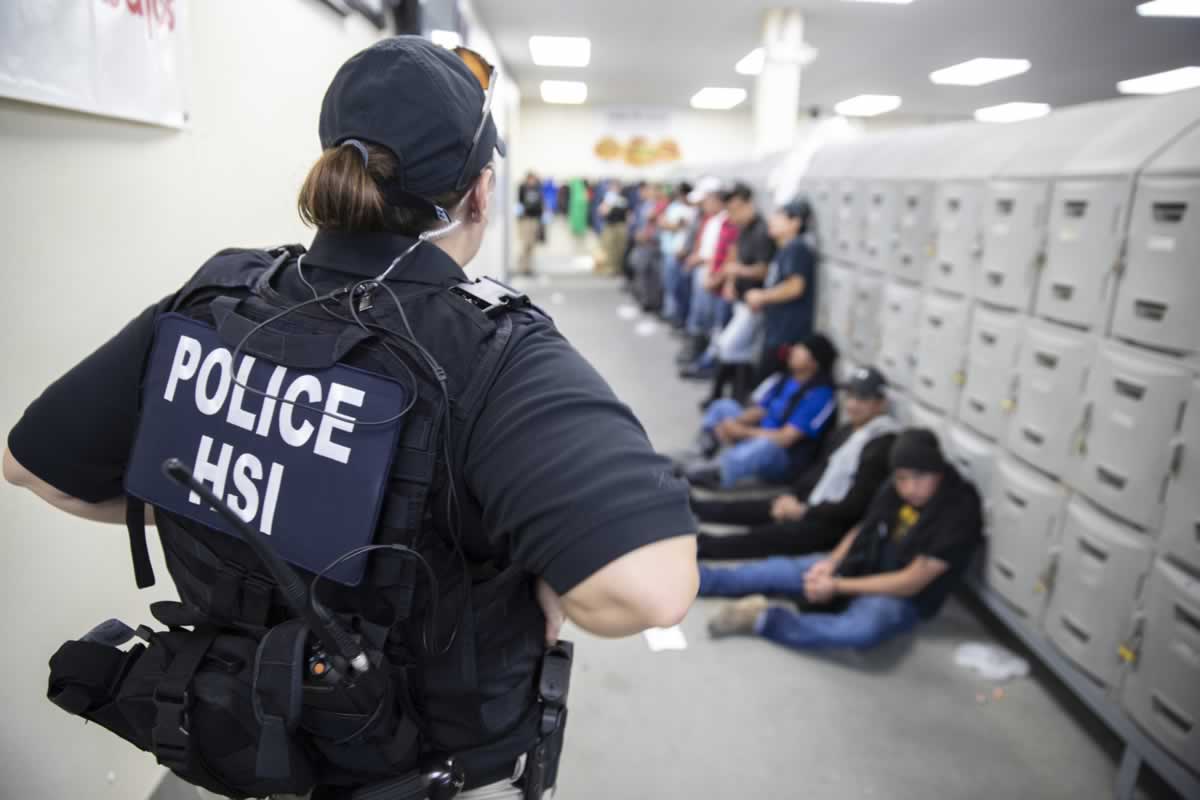Trump administration moves to collect DNA from detained migrants
The move toward mass DNA testing has alarmed civil liberties advocates.
The Trump administration revealed this week that it plans to begin taking DNA from detained migrants to track them in a national criminal database.
The new policy would enable Immigration and Customs Enforcement and Border Patrol to collect samples from those booked into immigrant detention, Homeland Security officials said Wednesday. The move could target hundreds of thousands of migrants and is likely to prompt a backlash from civil liberty organizations that say collecting genetic data collection should be limited to dangerous criminals.

"This means the administration's racist immigration policies will also implicate the rights of family members in other countries and family members here, including American citizens," American Civil Liberties Union lawyer Vera Eidelman said in a statement Wednesday night. "This kind of mass collection also alters the purpose of DNA collection from one of criminal investigation to population surveillance, which is contrary to our basic notions of freedom and autonomy."
Crossing the southern border without authorization is illegal, but most of those instances don't get prosecuted.
The DNA collected would be fed into the FBI’s Combined DNA Index System which is used for criminals in police stations across the country, officials said.
Further planning from the agency will determine the full scale of the collection process. More than 900,000 unauthorized migrants crossed the border in the past year and more than 40,000 people currently reside ICE detention.
The new policy follows the rollout of a rapid DNA testing pilot program earlier this year that Homeland Security said would be used to identify fraudulent claims of family relationships by people crossing the border.
In a rare statement of support, the U.S. Special Counsel, a federal accountability office, said the decision to start tracking DNA puts Homeland Security back on track with a 2005 DNA collection law. In 2010, the Obama administration exempted people booked into immigration detention from the law because Secretary Janet Napolitano said Homeland Security didn't have the resources to collect the DNA.
"I applaud the departments of Justice and Homeland Security for taking action to initiate DNA collection from criminal detainees," said special counsel Henry J. Kerner. "CBP's longstanding noncompliance with the law, based on a decade-old exception, allowed criminal detainees to walk free."
Last month, Kerner's office urged Homeland Security to initiate the testing program.
"This rule will bring more expeditious justice for victims and will help get criminals off the streets," Kerner said.
When asked if Kerner supported reallocating Homeland Security resources for testing, a spokesperson declined to comment on internal agency budgeting, but noted that federal law enforcement resources have grown under the Trump administration.